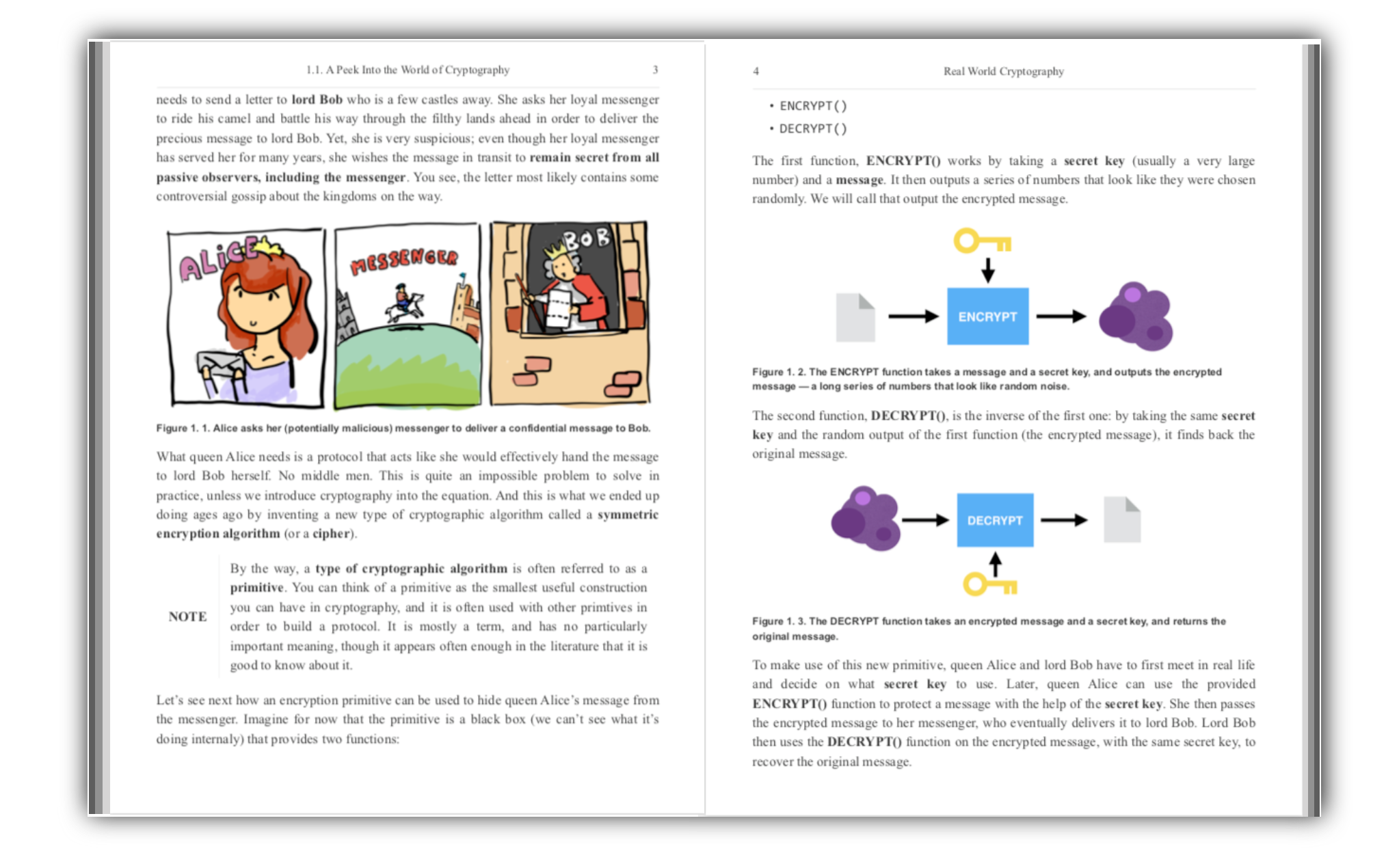David Wong's 7 rules of programming posted September 2021
Don't worry about the pretentious title, I was just inspired by Rob Pike's 5 Rules of Programming and by the Risk Manifesto of the The Security Engineer Handbook (which is explained in more details in the book):
Threat modeling over mindless improvements. Secure early rather than later. Forcing software over forcing people. Role play over complacency.
So I made my own! Without further ado:
- Put it in writing. If you leave for a month-long spiritual trip and someone needs to fix a bug in your code, will they have to wait for you? If an expert wants to assess the algorithm you're implementing, but have no knowledge in the programming language you used, will they manage to do it? These are questions you should ask yourself when writing a complex piece of code. It happens often enough that a protocol is implemented differently from the paper. Write specifications!
- The concorde is fast but dangerous. When writing optimized, faster code, or perhaps over-engineered or overly-clever code, you're trading off maintainability, clarity, and thus security of your code. I often hear programming language features claiming zero-overhead, but they always forget to talk about the cost paid in ambiguity and complexity.
- Plant types and data structures, then water. As Rob Pike says, use the right data structures, from there everything should flow naturally. Well documented structures are the best abstraction you'll find. Furthermore, functions that make too many assumptions on their inputs will have trouble down the line when someone changes the code underneath them. Encoding invariants in your types is a great way to address this issue. The bottom line is that you can get most of your clarity and security through creating the right types and objects!
- Don't let your dependencies grow on you. Dependencies easily grow like cancer cells. Beware of them. Analyse your dependencies, monitor and review the ones you use, rewrite or copy code to avoid importing large dependencies, and add friction to your process of adding new dependencies. Supply-chain attacks are being more and more of a thing, be aware.
- Make the robots enforce it. Enforce good code patterns and prevent bad code patterns through continuous integration where you can. This is pretty much to the "forcing software over forcing people" of the Risk Manifesto.
- Design lego cities, not real ones. The less connected your code is, the clearer it is to follow as the different parts will be self-contained, and the easier it will be to update some part of the code. Think about parts of your code as external libraries that are facing more than just your codebase.


Comments
Evan
7. Remember whether you started counting at 0 or 1.
leave a comment...